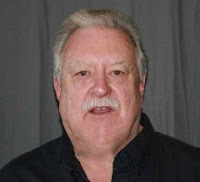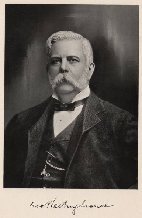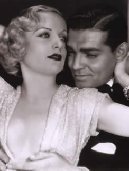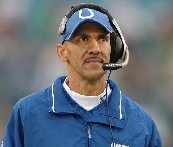Central Park is an urban park between the Upper West Side and Upper East Side neighborhoods of Manhattan in New York City, United States. It is the fifth-largest park in the city, containing 843 acres, and the most visited urban park in the United States, with an estimated 42 million visitors annually as of 2016.
The creation of a large park in Manhattan was first proposed in the 1840s, and a 778-acre park approved in 1853. In 1857, landscape architects Frederick Law Olmsted and Calvert Vaux won a design competition for the park with their "Greensward Plan". Construction began the same year; existing structures, including a majority-Black settlement named Seneca Village, were seized through eminent domain and razed. The park's first areas were opened to the public in late 1858. Additional land at the northern end of Central Park was purchased in 1859, and the park was completed in 1876. After a period of decline in the early 20th century, New York City parks commissioner Robert Moses started a program to clean up Central Park in the 1930s. The Central Park Conservancy, created in 1980 to combat further deterioration in the late 20th century, refurbished many parts of the park starting in the 1980s.
Main attractions include landscapes such as the Ramble and Lake, Hallett Nature Sanctuary, the Jacqueline Kennedy Onassis Reservoir, and Sheep Meadow; amusement attractions such as Wollman Rink, Central Park Carousel, and the Central Park Zoo; formal spaces such as the Central Park Mall and Bethesda Terrace; and the Delacorte Theater. The biologically diverse ecosystem has several hundred species of flora and fauna. Recreational activities include carriage-horse and bicycle tours, bicycling, sports facilities, and concerts and events such as Shakespeare in the Park. Central Park is traversed by a system of roads and walkways and is served by public transportation.
Its size and cultural position make it a model for the world's urban parks. Its influence earned Central Park the designations of National Historic Landmark in 1963 and of New York City scenic landmark in 1974. Central Park is owned by the New York City Department of Parks and Recreation but has been managed by the Central Park Conservancy since 1998, under a contract with the municipal government in a public–private partnership. The Conservancy, a non-profit organization, raises Central Park's annual operating budget and is responsible for all basic care of the park.
Description
Central Park is bordered by Central Park North at 110th Street; Central Park South at 59th Street; Central Park West at Eighth Avenue; and Fifth Avenue on the east. The park is adjacent to the neighborhoods of Harlem to the north, Midtown Manhattan to the south, the Upper West Side to the west, and the Upper East Side to the east. It measures 2.5 miles from north to south and 0.5 miles from west to east.
Visitors
Central Park is the most visited urban park in the United States and one of the most visited tourist attractions worldwide, with 42 million visitors in 2016. The number of unique visitors is much lower; a Central Park Conservancy report conducted in 2011 found that between eight and nine million people visited Central Park, with 37 to 38 million visits between them. By comparison, there were 25 million visitors in 2009, and 12.3 million in 1973.
The number of tourists as a proportion of total visitors is much lower: in 2009, one-fifth of the 25 million park visitors recorded that year were estimated to be tourists. The 2011 Conservancy report gave a similar ratio of park usage: only 14% of visits are by people visiting Central Park for the first time. According to the report, nearly two-thirds of visitors are regular park users who enter the park at least once weekly, and about 70% of visitors live in New York City. Moreover, peak visitation occurred during summer weekends, and most visitors used the park for passive recreational activities such as walking or sightseeing, rather than for active sport.
If you want to read a whole lot more, go here: https://en.wikipedia.org/wiki/Central_Park
This stuffed salmon recipe is even better than it looks! Our Crabmeat Stuffed Salmon takes imitation crab and combines it with this beautiful fish to make one of our favorite dinner recipes. Seafood recipes, specifically salmon recipes, can be tricky. So why not go for a seafood dinner recipe you know is going to be a success? This healthy recipe is easy, flavorful, and is sure to leave you pleasently stuffed! Once you try it, we know you'll be hooked.
- 1/2 pound imitation crabmeat, flaked
- 1/2 cup Italian breadcrumbs
- 1/2 teaspoon onion powder
- 1/4 teaspoon garlic powder
- 1 teaspoon chopped fresh parsley
- 1/4 cup (1/2 stick) butter, melted
- 6 (6-ounce) salmon fillets
- Preheat oven to 350º. Coat a baking sheet with cooking spray.
- In a medium bowl, combine all ingredients except salmon; mix well and set aside.
- Cut a slit lengthwise 3/4 of way through each salmon fillet. Evenly divide stuffing into each slit and place on prepared baking sheet.
- Bake 15 to 20 minutes, or until fish flakes easily.
1908 – Carole Lombard, American actress (d. 1942)
In the United States on October 6th, National German-American Day celebrates the German heritage millions of Americans claim.
HOW TO OBSERVE
Celebrate your German-American heritage. Invite friends and family to taste the foods and customs of Germany. Share the language. Discover words the English language adopted from German. Explore the history of immigration by visiting museums near you.
NATIONAL GERMAN-AMERICAN DAY HISTORY
National German-American Day was initially celebrated in the nineteenth century. However, it fell out of favor during World War I.
Then in the 1980s, things began to change. As is tradition, President Ronald Reagan made his world tour in 1982, which included West Germany. Amid a cold war and a divided Germany, the newly elected U.S. President spoke to the people of Bonn. He opened his speech by relating the history of the 13 German families who founded a colony on American soil. He spoke of contributions, advancement, science, and art and the honor to celebrate the German heritage that more than 7 million Americans claim.
To honor the 300th anniversary of German-American immigration and culture into the United States, in 1983, President Ronald Reagan proclaimed October 6th as German-American Day. It was on August 6, 1987, that Congress approved S.I. Resolution 108, designating October 6, 1987, as German-American Day, and it became Public Law 100-104 when President Reagan signed it on August 18. He issued Proclamation #5719 on October 2, 1987, and at this time, the President called on Americans to observe the day with appropriate ceremonies and activities. It has been commemorated each year since with Presidential Proclamations.










